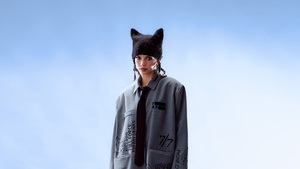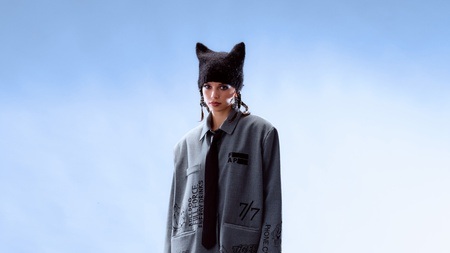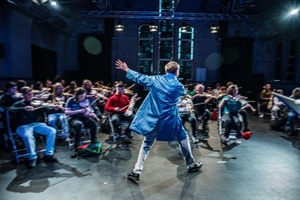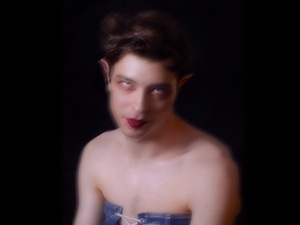PHOTO:
© Foto © 2012, Leo Seidel
Turandot
In the organizer's words:
In his last, unfinished opera, Puccini processed the aesthetics of the new mass medium of film. Lorenzo Fioroni's production builds a bridge from the repressed, but also sensationalist Chinese opera people to the consumers of the modern media world ... Conductor: John Fiore / Giulio Cilona; Director: Lorenzo Fioroni; With Catherine Foster / Ewa Plonka, Martin Muehle / Jorge Puerta, Clemens Bieber, Maria Motolygina / Sua Jo, Michael Bachtadze / Samuel Dale Johnson, Gideon Poppe / Andrew Dickinson, Ya-Chung Huang u..a.Tormenting doubts and crippling depression accompanied the creation process of Giacomo Puccini's last opera TURANDOT. Out of the initially diffuse fear that he would not be able to complete his opera, Puccini urged himself and his librettist duo Giuseppe Adami and Renato Simoni to hurry. It was to be a new beginning, born out of a compositional crisis into which the musical developments, indeed upheavals of the present had thrown him, a stroke of liberation, a departure for new shores.
Even the material was meant to signal a departure from the themes of the past. Puccini was in search of the "pure myth," the essence of what he had previously told in psychological-realistic minutiae on the theater. He had a fairy-tale, fantastic drama in mind, and he had found it when Simoni drew his attention in the spring of 1920 to the Turandot material, in the form of Carlo Gozzi's fairy-tale comedy (1762). Driven by nervous impatience, he accompanied - meticulously as always - the conception and execution of the libretto.
The opera centers on the cruel princess Turandot, who terrorizes her people. Her tyranny, which is like a curse and under which an entire country groans, can only be banished by Turandot's marriage. Potential marriage candidates must endure a difficult test. Whoever cannot solve the three riddles of the princess will be beheaded. Although countless princes have already met their deaths, there are still new candidates who allow themselves to be hypnotized by Turandot's beauty and willingly submit to her questions. Calaf, son of an exiled ruler from a foreign land, breaks this pattern against all expectations. He answers the questions and increases his triumph by reversing the balance of power, prolonging the cruel riddle game, and asking the princess a counter question. Should she be able to answer it, he promises to release her from her promise of marriage. By introducing a new character - the slave Liù - into the original Persian fairy tale material, a female figure reminiscent of the heroines of his earlier operas, Puccini only illuminates Turandot's bestial brutality more clearly. Liù - like various Puccini heroines before her - breaks down at the cruel reality that disregards her feelings. When she realizes that she cannot win Calaf, whom she loves, for herself, she sacrifices her life for her beloved. According to Puccini's ideas, in the final scene "love should explode" and "the humanity of love should outshine all cruelty." The ice-cold princess would undergo a complete transformation in her nature.
When Puccini was diagnosed with throat cancer in mid-1924, the opera - with the exception of that final scene - was virtually complete. Whether it was the serious illness or Puccini's inability to credibly extricate himself from the dramaturgical impasse into which the wonderful, fairy-tale-like but psychologically hardly comprehensible transformation of Turandot had led him, ultimately remains speculation. Puccini died as a result of an operation in a Brussels hospital on November 29, 1924, leaving behind the unfinished work that his colleague Franco Alfano completed - based on the master's sketches. Toscanini premiered TURANDOT at La Scala in Milan on April 25, 1925.
Although Puccini had not been able to make an unconditional new start with his TURANDOT, the influence of his experience with works by contemporary composers is nevertheless noticeable. Although this has not led to any radical change in his tonal language, his means of expression have become more unusual, more subtle, but also harder and more dramatic. With the part of Turandot he has created a completely new type of Italian high dramatic soprano reminiscent of Wagner's heavy heroines. This content has been machine translated.





